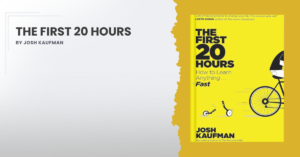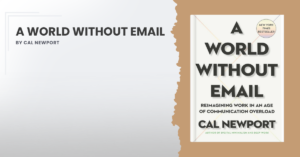Title: How to Stop Worrying and Start Living
Author: Dale Carnegie
Year: 1948
Pages: 320
How to Win Friends and Influence People by Dale Carnegie is the book that I recommend to everyone that most!
It is my top reading and a book a try to review every year.
Dale Carnegie’s How to Win Friends and Influence People is a timeless guide to mastering the art of building relationships and communication.
With its practical advice, it equips readers with the tools needed to navigate social and professional situations effectively.
The book’s enduring relevance is a testament to the invaluable insights it offers.
This book is a treasure trove of wisdom for anyone seeking to improve their interpersonal skills and enhance their ability to connect with others. Carnegie’s principles, rooted in empathy and understanding, continue to be relevant in a world where authentic human connections are more important than ever.
In a nutshell, How to Win Friends and Influence People is your roadmap to creating meaningful relationships, and becoming a more effective and empathetic communicator.
As a result, I gave this book a rating of 10/10.
3 Reasons to read How to Win Friends and Influence People
Build Lasting Relationships
This book equips you with the tools to create authentic connections with people, fostering deep and lasting friendships.
Enhance Communication Skills
It provides practical advice on effective communication, helping you become a better listener and communicator.
Navigate Social and Professional Situations
“How to Win Friends and Influence People” offers strategies to handle various social and professional scenarios with confidence and grace.
Book Overview
How to Win Friends and Influence People by Dale Carnegie is a timeless masterpiece of self-improvement and interpersonal effectiveness.
In this book, Carnegie explores the art of building meaningful relationships and enhancing communication skills, offering practical advice that is as relevant today as it was when first published in 1936.
The book’s core principles emphasize the significance of showing genuine interest in others, emphasizing that people are naturally drawn to those who listen and care about their thoughts, feelings, and concerns.
Carnegie introduces the concept of winning people over to your way of thinking through understanding their perspectives, offering techniques to persuade without arousing resentment.
Carnegie also provides insights into handling people tactfully, encouraging readers to navigate interpersonal relationships with diplomacy, even in the face of criticism or disagreement.
Throughout the reading of How to Win Friends and Influence People, we see that the key to success lies in empathy, active listening, and making others feel important.
One of the key principles emphasized in the book is the importance of showing genuine interest in others.
Carnegie suggests that by actively listening to people and asking about their interests, concerns, and experiences, one can forge stronger connections and win people over.
This involves putting aside one’s own ego and truly focusing on understanding and empathizing with others.
Another crucial aspect highlighted in Carnegie’s book is the power of appreciation and praise.
He emphasizes the significance of acknowledging people’s contributions and achievements sincerely.
By offering genuine praise, individuals feel valued and respected, which fosters positive relationships and encourages them to continue their efforts.
Carnegie suggests that even simple gestures of appreciation can have a profound impact on motivating others and strengthening bonds.
Moreover, Carnegie emphasizes the importance of handling disagreements and criticisms tactfully.
Instead of criticizing or condemning others directly, he advises approaching disagreements with empathy and understanding.
By showing respect for others’ perspectives and seeking common ground, individuals can resolve conflicts more effectively and maintain positive relationships.
Carnegie’s principles of empathy, appreciation, and tactful communication continue to resonate with readers, offering timeless wisdom for building meaningful connections and influencing others positively.
In today’s era of artificial intelligence and virtual relationships, the fundamental principles espoused in How to Win Friends and Influence People by Dale Carnegie remain as pertinent as ever.
Despite the technological advancements and the prevalence of digital interactions, the essence of human connection persists.
Whether it’s through virtual communication platforms or AI-driven algorithms, the underlying desire for understanding, empathy, and appreciation remains central to building meaningful relationships.
The principles of active listening, genuine interest in others, and effective communication are still essential in navigating the complexities of virtual interactions, fostering trust, and influencing others positively, highlighting the enduring relevance of Carnegie’s teachings in an increasingly interconnected world.
How to Win Friends and Influence People is not just a self-help book; it’s a guide to creating authentic connections, improving communication, and achieving personal and professional success through the power of human relationships.
What are the Key Ideas
The Importance of Showing Genuine Interest
How to Win Friends and Influence People emphasizes that showing a sincere interest in others is the foundation of building strong relationships. People respond positively to those who listen and care about their needs and concerns.
Winning People Over to Your Way of Thinking
The bookHow to Win Friends and Influence People offers strategies for persuading others without arousing resentment. The key is to understand their perspectives and communicate your ideas in a way that appeals to their interests.
Handling People Tactfully
How to Win Friends and Influence People discusses the art of handling people diplomatically, whether in disagreements, criticism, or delicate situations. The book teaches you how to maintain harmony in relationships.
Effective Communication Skills
How to Win Friends and Influence People highlights the importance of active listening and encourages you to let others feel that your conversations are about them. It suggests ways to make a favourable impression and leave a lasting impact.
What are the Main Lessons
My Book Highlights & Quotes
It isn’t what you have or who you are or where you are or what you are doing that makes you happy or unhappy. It is what you think about it
Don’t be afraid of enemies who attack you. Be afraid of the friends who flatter you
You can make more friends in two months by becoming interested in other people than you can in two years by trying to get other people interested in you
Any fool can criticize, complain, and condemn—and most fools do. But it takes character and self-control to be understanding and forgiving
When dealing with people, remember you are not dealing with creatures of logic, but with creatures bristling with prejudice and motivated by pride and vanity
Everybody in the world is seeking happiness—and there is one sure way to find it. That is by controlling your thoughts. Happiness doesn’t depend on outward conditions. It depends on inner conditions
Talk to someone about themselves and they’ll listen for hours
Actions speak louder than words, and a smile says, ‘I like you. You make me happy. I am glad to see you.’ That is why dogs make such a hit. They are so glad to see us that they almost jump out of their skins. So, naturally, we are glad to see them
You can’t win an argument. You can’t because if you lose it, you lose it; and if you win it, you lose it
I have come to the conclusion that there is only one way under high heaven to get the best of an argument— and that is to avoid it. Avoid it as you would avoid rattlesnakes and earthquakes
Every man I meet is my superior in some way. In that, I learn of him
Criticisms are like homing pigeons. They always return home
Only knowledge that is used sticks in your mind
The only way I can get you to do anything is by giving you what you want
A person’s name is to that person the sweetest and most important sound in any language
In conclusion, How to Win Friends and Influence People is a must-read for anyone seeking to enhance their personal and professional life.
How to Win Friends and Influence People offers invaluable insights into the art of building genuine connections, improving communication skills, and navigating social and professional situations with finesse.
Its enduring relevance underscores the enduring power of How to Win Friends and Influence People’s wisdom, making it a timeless resource for those who aspire to master the art of human interaction and achieve success through meaningful relationships.
Reading How to Win Friends and Influence People is an investment in personal growth and the key to unlocking the doors of opportunity in both your personal and professional life.
I am incredibly grateful that you have taken the time to read this post.
Do you want to get new content in your Email?
Do you want to explore more?
Check my main categories of content below:
- Agile
- Blog
- Book Notes
- Career
- Leadership
- Management
- Managing Yourself
- Productivity
- Project Management
- Technology
- Weekly Pulse
Navigate between the many topics covered in this website:
Agile Art Artificial Intelligence Blockchain Books Business Business Tales Career Coaching Communication Creativity Culture Cybersecurity Design DevOps Economy Emotional Intelligence Feedback Flow Focus Gaming Goals GPT Habits Health History Innovation Kanban Leadership Lean Life Managament Management Mentorship Metaverse Metrics Mindset Minimalism Motivation Negotiation Networking Neuroscience NFT Ownership Parenting Planning PMBOK PMI Politics Productivity Products Project Management Projects Pulse Readings Routines Scrum Self-Improvement Self-Management Sleep Startups Strategy Team Building Technology Time Management Volunteering Work
Do you want to check previous Book Notes? Check these from the last couple of weeks:
- Book Notes #123: The Personal MBA by Josh Kaufman
- Book Notes #122: The First 20 Hours by Josh Kaufman
- Book Notes #121: A World Without Email by Cal Newport
- Book Notes #120: Storynomics by Robert McKee and Thomas Gerace
- Book Notes #119: Getting Things Done by David Allen
Support my work by sharing my content with your network using the sharing buttons below.
Want to show your support tangibly? A virtual coffee is a small but nice way to show your appreciation and give me the extra energy to keep crafting valuable content! Pay me a coffee:





